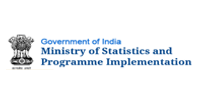PROF. P.V. SUKHATME - AN EMINENT STATISTICIAN
Pandurang Vasudeo Sukhatme was born on 27th July 1911 in the village Budh, district Satara, 100 miles south of Pune. After completing school education in Pune, he graduated in 1932 from Ferguson College of the same city with Mathematics as the principal subject and Physics as the subsidiary. During 1933-36, he studied at the University College, London and was awarded a Ph.D. in 1936 and a D.Sc. in 1939 for his work on bipartitional functions. This work was published in the “Philosophical Transactions of the Royal Society of London, Series A”, June 1938.
In 1939-40, he became a Professor at the All India Institute of Hygiene and Public Health, Calcutta. In 1940, he joined ICAR as a Statistician and was a Statistical Advisor of the Indian Council for Agricultural Research (ICAR) when he left the organization. On account of his dynamic leadership, following the path and tradition set by him, the statistical branch of ICAR eventually grew to become full-fledged institute exclusively devoted to research in agricultural statistics. In this context of the green revolution the importance of statistical techniques in agricultural research hardly needs emphasis. Prof. Sukhatme , as a founder of the Indian Society of Agricultural Statistics , devoted a good deal of his time and energy to the popularization of statistical methods among the practitioners of agricultural, veterinary and related sciences. In 1951, he was a visiting Professor at Lowa State University, Ames, Lowa , where he completed his textbook on sampling. During 1952-70 he headed the Statistics Division of the Food and Agricultural Organisation (FAO) , Rome. After retiring from the United Nations in 1971 he served as Regents Professor, University of California at Berkeley for sometime and thereafter settled in Pune, carrying out valuable work on nutrition at the Maharashtra Association for Cultivation of Science. On 28th January, 1997, Prof. Sukhatme passed away peacefully.
Prof. Sukhatme is well known in this field for the Sukhatme-Margen hypothesis which in plain language implies the following that at low levels of caloric intake, energy is used with greater metabolic efficiency and efficiency decreases as the intake increases over the homeostatic range.
Prof. Sukhatme was awarded the ‘Guy Medal’ by the Royal Statistical Society for his paper on nutrition, which he presented to the Society in 1963, the B.C.Guha memorial lecture of the Indian Science Congress Association in 1965 and the B.D. Tilak lecture of the Indian National Science Academy in 1982. Among the numerous other honours he has received mention must be made of the fellowship of American Statistical Association , Fellowship of National Academy of Sciences, Allahabad and Indian Academy of Sciences , Bangalore and Indian National Science Academy, New Delhi. He was elected member of the International Statistical Institute, Netherlands and its Vice-president in 1969-70. For his outstanding contributions to Science and Human Welfare, he was conferred the Padma Bhushan by the President of India in 1973. He was awarded the Hari Om Ashram Trust Award by the University Grants commission in 1983.












